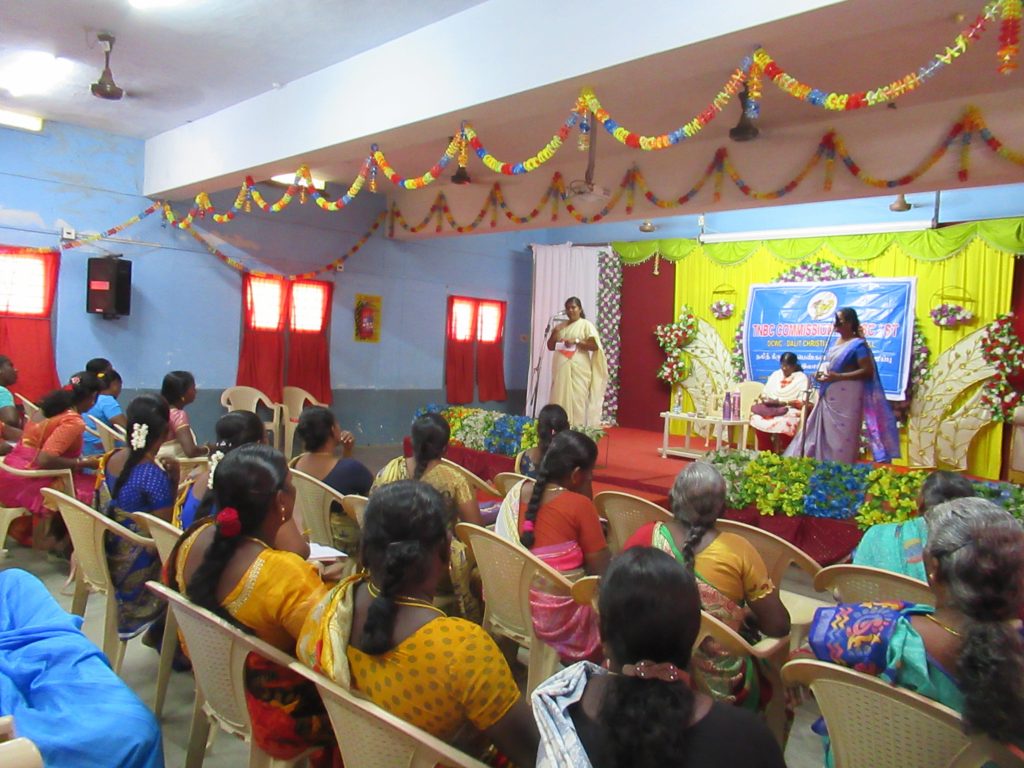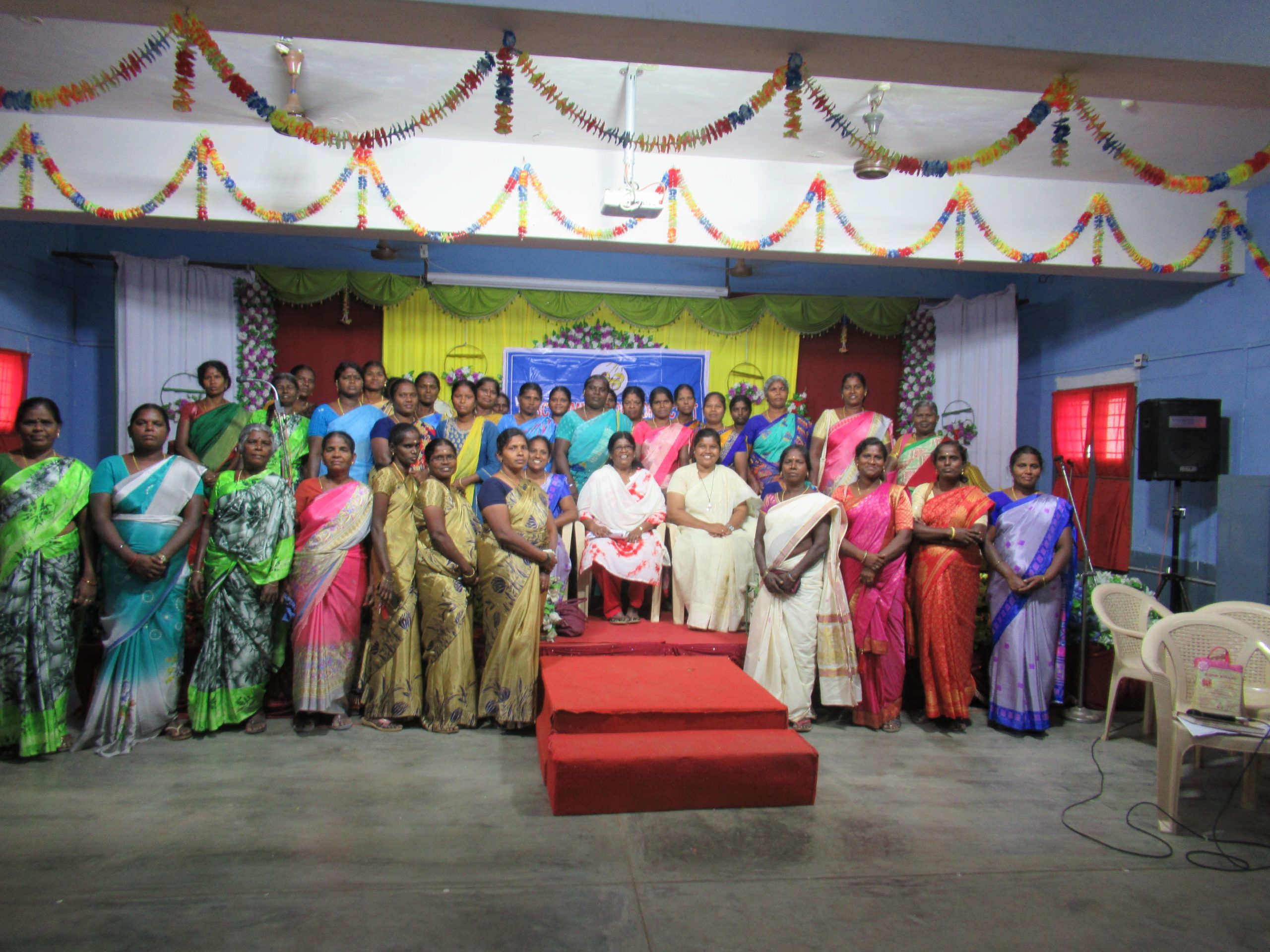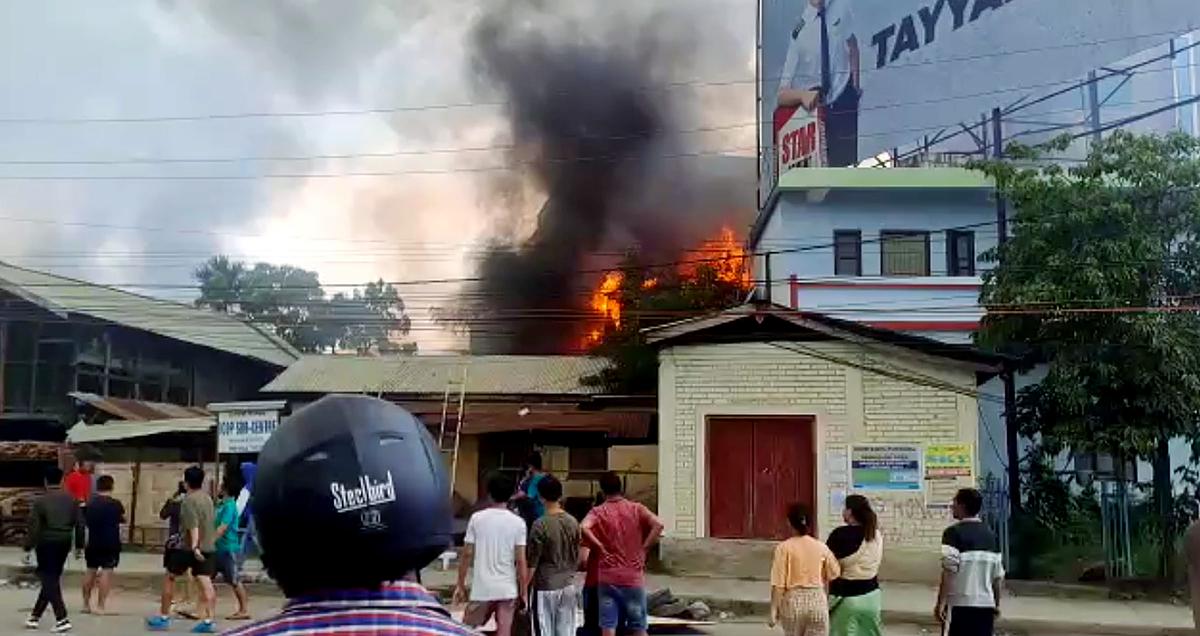By DCD Desk
Caste discrimination is a grave social sin. This statement was declared by the Indian Catholic bishops when they agreed six years ago, on December 13, 2016, while promulgating the Dalit Empowerment Policy.
Nothing much has changed even after disseminating the policy and releasing it in eight languages, including Spanish.
Recently, the Regional Commission for Scheduled Castes (SC) and Scheduled Tribes (ST) of the Tamil Nadu Bishops’ Council (TNBC) restarted the process of implementing the Dalit policy in Tamil Nadu.
Fr. Vijoy Kumar Nayak, the national secretary of the Catholic Bishops’ Conference of India (CBCI), Office for Dalits and Backward Classes was invited for the consultation.
As a follow-up to the consultation meeting in Chennai, a training program was organized on Dalit Empowerment Policy on February 19 at Don Bosco ITI in Manakkal, Lalkdi, of Trichy district in Tamil Nadu. The participants were the Dalit Christian Women Federation
Savita Mary, President of the Dalit Christian Women Federation, welcomed the resource person and the participants.
Sr. Robancy A Helen, a member of the drafting committee for the Dalit Empowerment Policy, briefed about the importance of the document.

Women must take up the responsibility to voice out the discrimination that they face in their daily lives and should help other women rise above the slavery of child marriage, illiteracy, and male dominance, said Sister Robancy.
“Women should be free of disputes and come together against caste discrimination and other forms of exclusion, exploitation, and injustice. We all need a change in life to build up our lives together,” she added.
The nun said Dalit vocations to the priesthood and religious lives should be promoted, and women in families should encourage their children to become priests and religious men and women.
The Dalit Empowerment Policy is a tool for the Indian Church to eradicate all discriminatory forms of caste in church and society, and to treat everyone as the children of God, Robancy reminded.
Dalit Christians must get proportionate justice as they are alienated, oppressed, and thrice discriminated against, she said.

The federation consists of Dalit Christian women who are the representatives of Dalit Christian women’s and men’s cells in Tamil Nadu and Pondicherry. There are 300 Dalit Christian cells and 50 Dalit Christian women cells animated by the Regional SC/ST Commission of the TNBC.
The women’s cell members are from Peruvalanallur, Vantram Palayam, Puthur Palayam, Kumulur, Irudaya Puram, Agalanga Nallur and Poovalur.
The Dalit Christian women have empowered themselves socio-economically and politically through these Dalit Christian Women cells, but they still need to grow to participate in the decision-making bodies in the Catholic Church, said Jesindha Dharmaraj, administrative coordinator of the TNBC Commission for SC/ST.
The Dalit Christian Women Federation of the Regional Commission of SC/ST has been animated by Elizabeth Rani from Lalkudi, and she is the organizer of the training program.
Participants shared the success stories of two women who were abandoned by their husbands and are successfully educating their children.
Over 60 Dalit Christian women leaders participated in the program. Delma Rose proposed the vote of thanks. She is the treasurer of the DCWC Federation and the president of the Ambedkar Dalit Christian Women Cell in Pullambadi.










